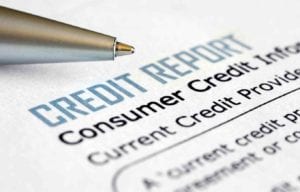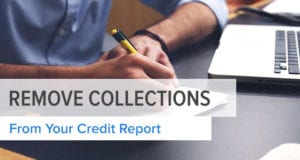After the recent Equifax security breach, where more than 143 million Americans had their personal data stolen, many people have wondered whether it is possible to opt out of credit reports and scoring, in order to reduce one’s risk of identity theft. After all, being able to opt out of credit reporting, could mean a reduced chance of having one’s personal data stolen. In a nutshell, it isn’t really possible to opt out of reporting credit, unless you completely stop using credit, which will have major costs of it’s own. For this reason, it’s better to effectively manage credit, and take precautions to prevent identity theft.
When one opens a credit account, whether that be a credit card, student loan, mortgage, or auto loan, the account will normally be reported to credit bureaus. The company which issued the loan, will indicate the account number, date when the account was opened, the amount owed (balance), your payment history (whether you paid on time or not).
If you don’t have any credit accounts, but you forgot to pay a bill (let’s say to a medical provider, cell phone, or cable company), that bill can be turned over to a collection agency, or sold to a debt buyer, and appear on your credit reports. If you did not pay all of your state or federal taxes, a lien might be issued in court against you, and appear on your credit report. The same is true of judgments, where you were sued in court, and lost the case.
Let’s recap. In order for you to “opt out” of credit reporting, you will need to not use any type of credit, and avoid having any bills turned over to collections, and make sure that you don’t have any tax liens or judgments issued against you.
So far so good? Well, let’s consider the costs of not using credit. No credit history, is often treated the same, or even worse, than having bad credit. If you attempt to rent an apartment without credit history, you’ll be asked to pay as much as an entire year’s worth of rent up front, or provide several months of extra security deposit. If you hope to own a home or a car, you’ll need to save significant amounts of cash, for extended periods of time, in order to complete the purchase. When it comes time to obtain home or auto insurance, you’ll end up spending more than you should, since both types of insurance consider your credit score. Even for relatively simply transactions, such as setting up a cell phone plan, or opening an electricity or gas account, you’ll probably be subject to a credit check. If you don’t have a credit score, you might be asked to provide an extra deposit. Clearly, having no credit, just like poor credit, costs quite a lot.
Maybe not using credit, and hence having no data on a credit report, doesn’t sound as realistic anymore. But, how do you protect against identity theft, and other negative consequences? The first step you’ll want to take, is to monitor your credit regularly. Sign up for Credit Karma (www.creditkarma.com). Here, you can get free access to your Equifax and TransUnion credit reports. You should also sign up for freecreditscore.com, where you can get a free copy of your Experian credit reports.
You’ll want to check your reports at least once per month. Specifically, review the sections which contain credit inquiries, or credit applications in your name. If any inquiries look unfamiliar, you’ll want to contact the party which conducted the inquiry, and find out why it was done.
If you learn that multiple unauthorized inquiries have occurred, it’s possible that you’ve been a victim of identity theft. If you have some additional proof of this, you’ll want to follow the steps we’ve discussed earlier, which are also laid out in the FTC’s Identity Theft Guide. Even if you don’t have sufficient reason to believe your identity was stolen, at this stage, you’ll likely want to freeze your credit reports, with each of the three major credit bureaus. You can freeze Experian, Equifax and TransUnion at the included links. By freezing your credit, no one can apply for credit in your name, unless you temporarily lift the credit freeze, or provide creditors with a PIN number which only you know.
By following the suggestions above, you’ll be able to protect your identity, while also making sure that you don’t end up overpaying on a range of financial transactions. It is understandable to be concerned about identity theft, and the other risks posed by credit reporting. However, the solution is not to stop using credit, but rather, to exercise caution, such that you can effectively protect your identity.
Shiva Bhaskar is an experienced consumer credit attorney, and the cofounder of Tier One Credit (www.tieronecredit.com), a credit consulting firm dedicated to helping every American enjoy the best credit score possible. Shiva can be reached by email at [email protected].



